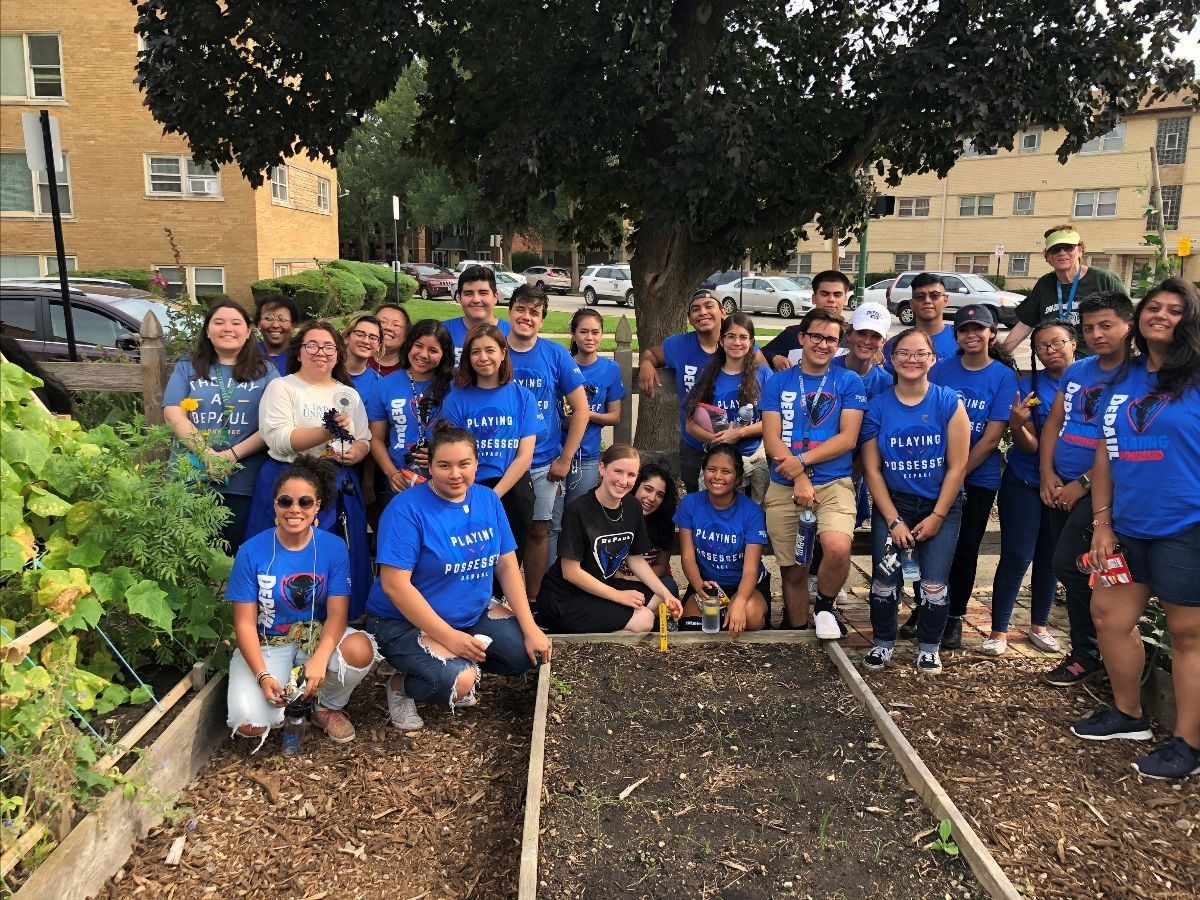 DePaul's recently launched Generation Success initiative is one of the reasons NASPA recognized the university as a First-gen Forward Institution. (Image courtesy of Student Affairs)
DePaul's recently launched Generation Success initiative is one of the reasons NASPA recognized the university as a First-gen Forward Institution. (Image courtesy of Student Affairs)This month, NASPA's Center for First-Generation Student Success recognized DePaul as a First-gen Forward Institution for its commitment to first-generation students. With this designation, the university joins the organization’s 2020-21 cohort.
DePaul's Office of Multicultural Student Success works with first generation college students by developing sustained developmental programs to support these students' college success. Beyond managing retention, persistence and empowerment programs, OMSS also serves as an advocacy office for marginalized college students during their time at DePaul. More specifically, the university's
Generation Success program, a new initiative launched in fall 2019, aims to support those who are first in their families to attend college in the U.S.
As a First-gen Forward Institution, DePaul joins a community of professionals and institutions that aim to share evidence-based practices and resources, troubleshoot challenges and generate knowledge to advance the success of first-generation college students.
Later this year, two DePaul faculty or staff members will have the opportunity to attend the First-gen Forward Workshop in Baltimore, Maryland.
As part of the First-Gen program, DePaul must complete a goal-setting exercise, attend three virtual events and complete a blog related topic to first-generation. Following this cohort cycle, DePaul can apply for the First-Gen Forward Advisory Institution, allowing the university to offer leadership support to new institutions.
Launched in 2017 as an initiative of the National Association of Student Personnel Administrators, the Center for First-Generation Student Success aims to provide institutions with resources such as information sharing, program development and scholarly discussion to achieve higher first-gen student success.